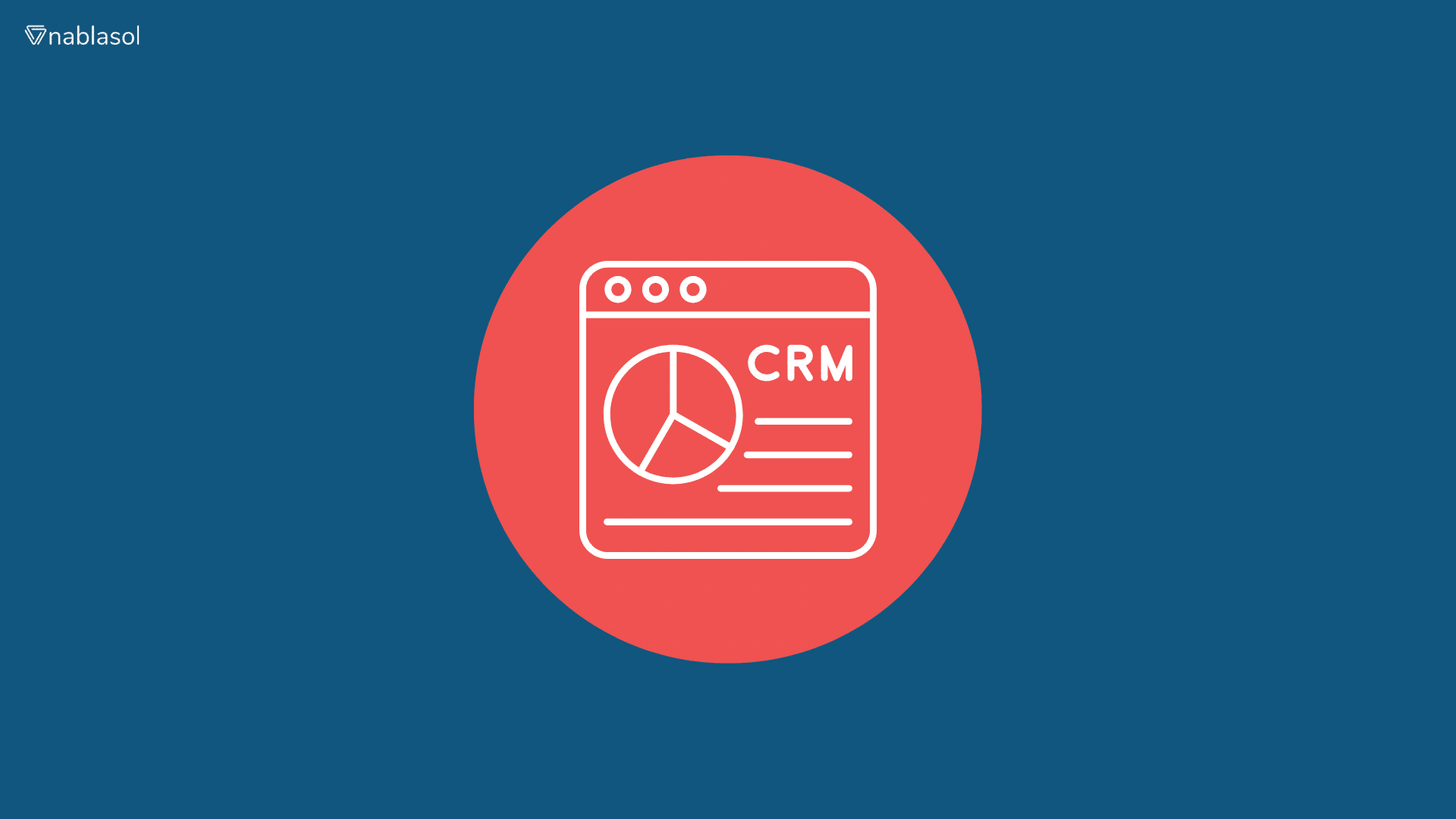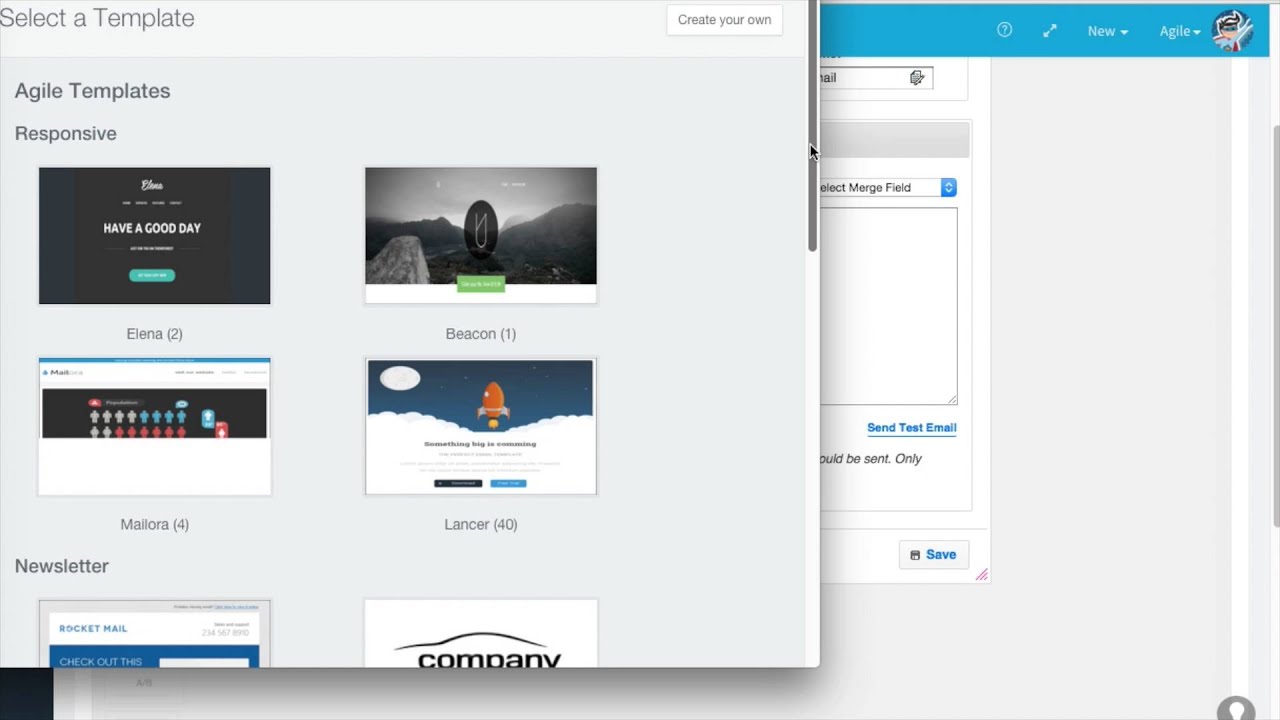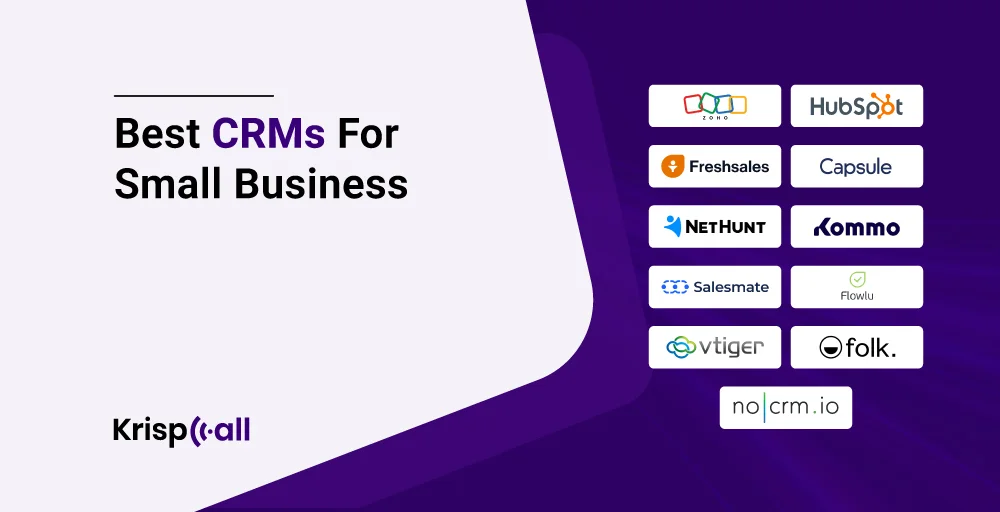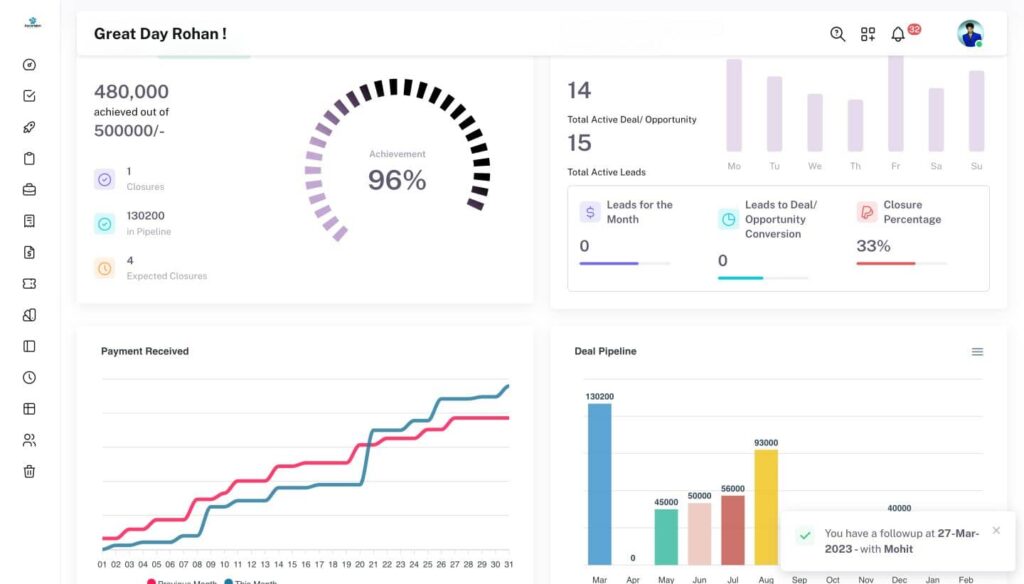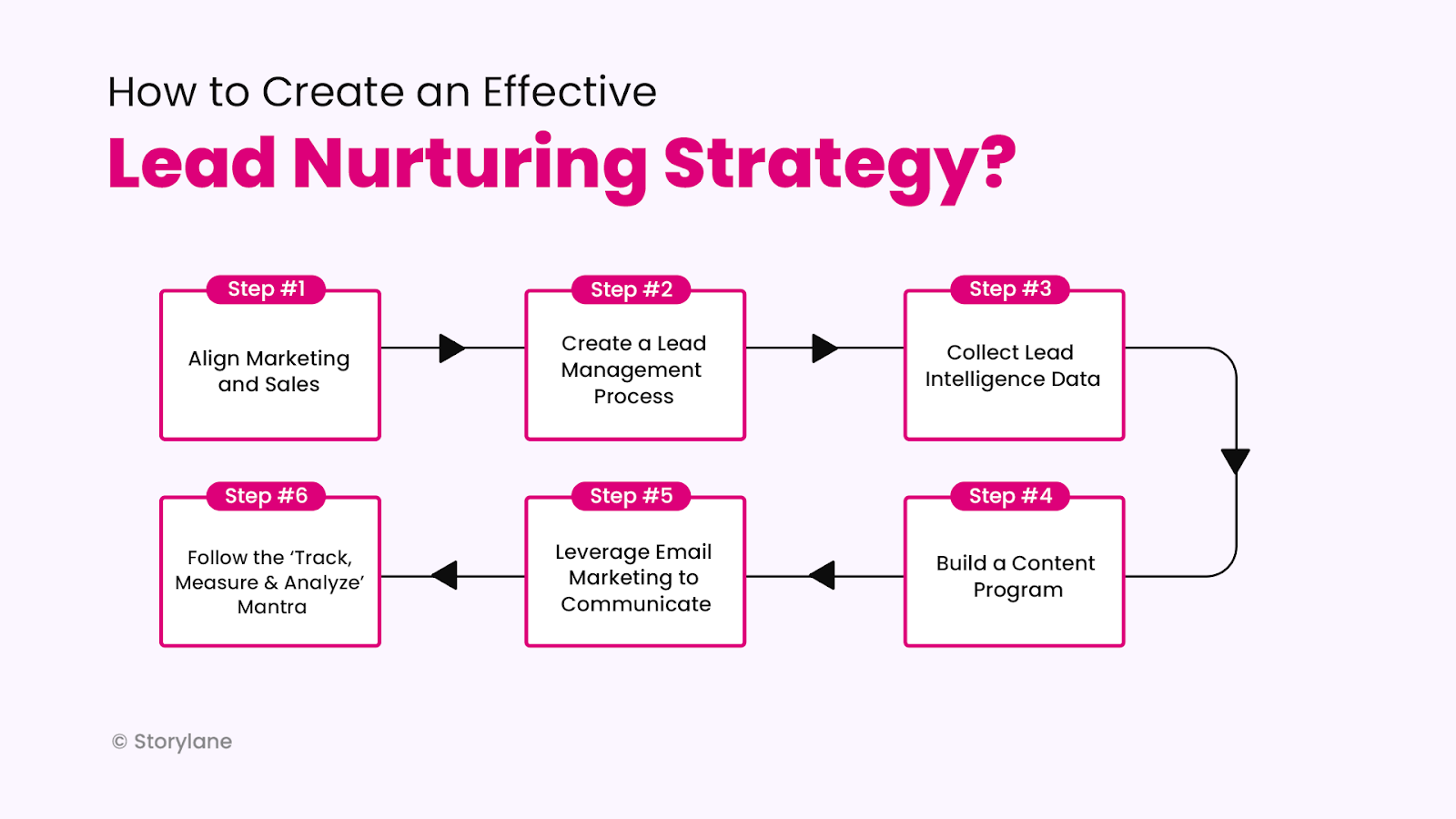Unlock Efficiency: How CRM Transforms Small Businesses
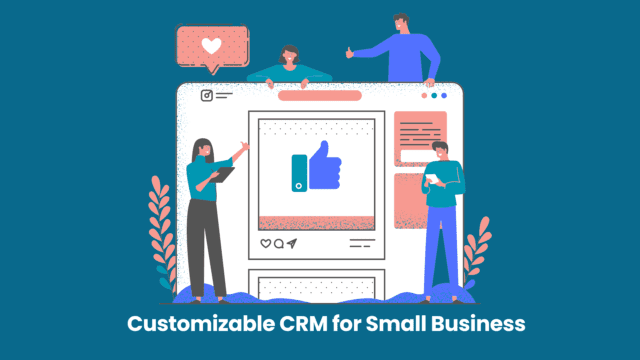
Running a small business is a whirlwind. You’re juggling everything from product development and marketing to customer service and finances. In this chaotic environment, efficiency is not just desirable; it’s essential for survival and growth. This is where a Customer Relationship Management (CRM) system steps in, offering a lifeline to streamline operations, boost productivity, and ultimately, drive revenue. This article delves into the transformative power of CRM for small businesses, exploring how it can revolutionize your approach to customer interactions, sales, and overall business management.
The Core Benefits of CRM for Small Businesses
Before diving into the specifics, let’s understand the fundamental advantages a CRM system brings to the table:
- Improved Customer Relationships: At its heart, CRM is about building and nurturing strong customer relationships. By centralizing customer data, you gain a 360-degree view of each interaction, allowing for personalized communication and proactive service.
- Increased Sales: CRM empowers your sales team with valuable insights, helping them identify qualified leads, track progress, and close deals more effectively.
- Enhanced Productivity: Automation features within CRM systems eliminate manual tasks, freeing up your team to focus on higher-value activities.
- Data-Driven Decision Making: CRM provides comprehensive reporting and analytics, giving you the data you need to make informed decisions about your business strategy.
- Cost Reduction: By optimizing processes and reducing errors, CRM can lead to significant cost savings over time.
These benefits, when combined, create a powerful engine for small business success. But how does it all work in practice?
Understanding the Key Features of a CRM System
A robust CRM system offers a range of features designed to address various aspects of your business operations. While the specific features may vary depending on the platform, here are some of the most common and valuable:
Contact Management
This is the foundation of any CRM. It allows you to store and organize detailed information about your customers, including contact details, communication history, purchase history, and any other relevant data. This central repository ensures that everyone in your team has access to the same information, fostering consistency and collaboration.
Lead Management
CRM systems help you track and nurture leads throughout the sales pipeline. You can capture leads from various sources, such as website forms, email campaigns, and social media. The system then helps you qualify leads, assign them to sales representatives, and track their progress through the sales process.
Sales Automation
Sales automation features streamline the sales process by automating repetitive tasks such as email follow-ups, appointment scheduling, and quote generation. This frees up your sales team to focus on building relationships and closing deals.
Marketing Automation
Many CRM systems include marketing automation features that allow you to create and manage marketing campaigns, track their performance, and nurture leads through the sales funnel. This can include email marketing, social media management, and lead scoring.
Customer Service and Support
CRM systems can also be used to manage customer service and support interactions. This includes features such as ticketing systems, knowledge bases, and live chat, allowing you to provide efficient and effective customer support.
Reporting and Analytics
CRM systems provide comprehensive reporting and analytics dashboards, giving you valuable insights into your sales performance, marketing effectiveness, and customer behavior. This data can be used to identify areas for improvement and make data-driven decisions.
Choosing the Right CRM System for Your Small Business
Selecting the right CRM system is a crucial decision. The best choice depends on your specific business needs, budget, and technical capabilities. Here’s a breakdown of key factors to consider:
1. Define Your Needs
Before you start evaluating CRM systems, take the time to clearly define your needs. What are your biggest challenges? What are your goals? Consider the following:
- Sales Process: How does your sales process work? What are the key stages?
- Customer Service: How do you currently handle customer inquiries and support requests?
- Marketing Activities: What marketing channels do you use? What are your key marketing goals?
- Team Size: How many people will be using the CRM system?
- Budget: How much are you willing to spend on a CRM system?
Answering these questions will help you identify the features and functionalities that are most important for your business.
2. Research and Compare Options
Once you have a clear understanding of your needs, start researching different CRM systems. There are many options available, ranging from simple, affordable platforms to more complex, feature-rich solutions. Some popular CRM systems for small businesses include:
- HubSpot CRM: A free CRM system that offers a wide range of features, including contact management, sales pipeline tracking, and email marketing.
- Zoho CRM: A versatile CRM system that offers a range of features for sales, marketing, and customer service.
- Salesforce Sales Cloud: A powerful CRM system that offers a comprehensive suite of features for businesses of all sizes.
- Pipedrive: A sales-focused CRM system that is known for its user-friendly interface and visual pipeline management.
- Freshsales: A sales CRM that focuses on ease of use and provides features like built-in phone and email.
When comparing options, consider the following:
- Features: Does the CRM system offer the features you need?
- Ease of Use: Is the system easy to learn and use?
- Pricing: Does the pricing fit your budget?
- Integrations: Does the system integrate with other tools you use, such as email marketing platforms and accounting software?
- Scalability: Can the system scale as your business grows?
- Customer Support: What level of customer support is provided?
3. Consider Scalability and Integration
As your business grows, your CRM needs will likely evolve. Choose a system that can scale to accommodate your changing requirements. Look for a CRM system that offers:
- Customization options: The ability to customize the system to fit your specific needs.
- Integration with other tools: The ability to integrate with other tools you use, such as email marketing platforms, accounting software, and project management tools.
- Add-ons and extensions: The availability of add-ons and extensions that can extend the functionality of the system.
4. Evaluate Pricing Models
CRM systems are offered in various pricing models. Common models include:
- Free: Some CRM systems offer free versions with limited features.
- Subscription-based: Most CRM systems are subscription-based, with pricing based on the number of users and the features included.
- Per-user pricing: You pay a monthly or annual fee for each user who has access to the system.
- Tiered pricing: Pricing is based on the features you need, with different tiers offering different levels of functionality.
Carefully evaluate the pricing models and choose a plan that fits your budget and your business needs. Consider the long-term cost of the system, including the cost of any add-ons or upgrades.
5. Implement and Train Your Team
Once you’ve chosen a CRM system, the next step is to implement it and train your team. This involves:
- Data migration: Importing your existing customer data into the new system.
- System configuration: Setting up the system to match your business processes.
- User training: Training your team on how to use the system effectively.
Proper implementation and training are crucial for the success of your CRM system. Provide your team with adequate training and support to ensure that they can use the system effectively and efficiently.
Maximizing CRM Efficiency: Best Practices for Small Businesses
Simply implementing a CRM system isn’t enough. To truly unlock its potential, you need to adopt best practices and integrate it into your daily workflow. Here are some key strategies for maximizing CRM efficiency:
1. Data Hygiene is King
Garbage in, garbage out. The quality of your data directly impacts the effectiveness of your CRM. Regularly clean and update your customer data to ensure accuracy and relevance. This includes:
- Removing duplicate entries: Avoid confusion and ensure consistent communication.
- Correcting inaccurate information: Update contact details, job titles, and other relevant information.
- Standardizing data formats: Use consistent formats for addresses, phone numbers, and other data fields.
- Regularly reviewing and updating data: Make data maintenance an ongoing process, not a one-time task.
2. Customize Your CRM to Fit Your Business
Don’t try to fit your business into a pre-defined CRM mold. Customize the system to align with your specific processes and workflows. This might involve:
- Creating custom fields: Add fields to store specific data that is relevant to your business.
- Customizing the sales pipeline: Adapt the stages of the sales pipeline to match your sales process.
- Automating workflows: Set up automated workflows to streamline repetitive tasks.
The more you tailor your CRM to your specific needs, the more effective it will be.
3. Integrate CRM with Other Tools
Integrate your CRM with other tools you use, such as email marketing platforms, accounting software, and project management tools. This will:
- Eliminate data silos: Ensure that data is shared seamlessly between different systems.
- Automate tasks: Automate the transfer of data between systems.
- Improve efficiency: Reduce the need for manual data entry and streamline workflows.
4. Train Your Team Thoroughly
Provide your team with comprehensive training on how to use the CRM system effectively. This includes:
- Understanding the features and functionalities: Make sure your team knows how to use all the features of the system.
- Following best practices: Train your team on best practices for data entry, lead management, and customer communication.
- Providing ongoing support: Offer ongoing support and training to help your team stay up-to-date with the system.
Well-trained employees are more likely to use the CRM system effectively and efficiently.
5. Track Key Metrics and Analyze Results
Use the CRM’s reporting and analytics features to track key metrics and analyze results. This will help you:
- Measure the effectiveness of your sales and marketing efforts.
- Identify areas for improvement.
- Make data-driven decisions.
Regularly review your CRM data to understand what’s working and what’s not.
6. Embrace Automation
Take advantage of the automation features offered by your CRM. Automate repetitive tasks such as:
- Email follow-ups: Schedule automated email follow-ups to nurture leads and stay in touch with customers.
- Task creation: Automatically create tasks for your team based on specific triggers.
- Data entry: Automate data entry by integrating with other systems.
Automation frees up your team to focus on higher-value activities.
7. Foster a Culture of CRM Adoption
Encourage your team to embrace the CRM system as an essential tool. This involves:
- Leading by example: Demonstrate the importance of using the CRM system.
- Providing incentives: Offer incentives for using the system effectively.
- Soliciting feedback: Ask for feedback from your team to identify areas for improvement.
A culture of CRM adoption will ensure that the system is used consistently and effectively.
Overcoming Challenges and Pitfalls
While CRM systems offer tremendous benefits, small businesses may encounter certain challenges during implementation and adoption. Being aware of these potential pitfalls can help you avoid them:
1. Lack of Planning
Failing to plan adequately is a common mistake. Before implementing a CRM, take the time to define your needs, choose the right system, and develop a detailed implementation plan. This includes data migration, system configuration, and user training.
2. Poor Data Quality
As mentioned earlier, poor data quality can undermine the effectiveness of your CRM. Invest time and resources in cleaning and updating your customer data. Implement data validation rules to prevent errors.
3. Resistance to Change
Some team members may resist using the new CRM system. Address resistance by providing adequate training, communicating the benefits of the system, and involving team members in the implementation process.
4. Insufficient Training
Inadequate training can lead to low adoption rates and inefficient use of the system. Provide comprehensive training to all users, including initial training, ongoing support, and refresher courses.
5. Ignoring User Feedback
Don’t ignore feedback from your team. Listen to their concerns and suggestions. Use their feedback to improve the system and make it more user-friendly.
6. Not Customizing the System
Failing to customize the system to fit your specific needs can limit its effectiveness. Customize the system to match your business processes and workflows.
7. Overcomplicating the System
Avoid overcomplicating the system by adding too many features or customizations. Keep the system as simple and user-friendly as possible.
The Future of CRM for Small Businesses
The CRM landscape is constantly evolving, with new technologies and features emerging regularly. Here are some trends to watch:
- Artificial Intelligence (AI): AI is being integrated into CRM systems to automate tasks, personalize customer interactions, and provide predictive analytics.
- Mobile CRM: Mobile CRM apps are becoming increasingly important, allowing users to access and manage customer data on the go.
- Social CRM: Social CRM features are integrating social media data into the CRM system, providing a more comprehensive view of customer interactions.
- Increased focus on personalization: CRM systems are increasingly focused on personalization, allowing businesses to deliver more relevant and targeted experiences.
- Integration with other technologies: CRM systems are integrating with other technologies, such as cloud computing, the Internet of Things (IoT), and blockchain.
Small businesses that embrace these trends will be well-positioned to stay competitive and provide exceptional customer experiences.
Conclusion: Embracing CRM for a More Efficient Future
In the fast-paced world of small business, efficiency is paramount. A well-implemented CRM system is a powerful tool that can help you streamline operations, improve customer relationships, and boost sales. By understanding the core benefits, key features, and best practices of CRM, you can transform your business and achieve sustainable growth.
From contact management to sales automation and customer service integration, a CRM system provides the structure and insights you need to make informed decisions and deliver exceptional customer experiences. Remember to choose the right system for your needs, implement it effectively, train your team, and continuously optimize your processes.
The future of small business is intertwined with the power of CRM. By embracing this technology and staying ahead of the trends, you can unlock new levels of efficiency, drive revenue, and build a thriving business. So, take the first step today and explore the transformative potential of CRM for your small business.

